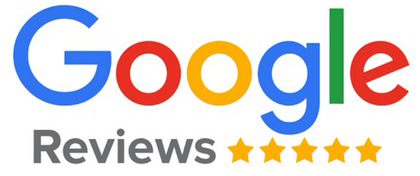If I’m Struggling With Bills, Which Should I Pay First?
Posted on Wednesday, July 29th, 2015 at 10:42 am
Many of our clients are facing the same problem: there isn’t enough money to go around, and they are robbing Peter to pay Paul. Some clients come in for bankruptcies after some financial calamity and are juggling credit cards just to put food on the table. Others come in for an injury, following a car wreck or work injury, and suddenly find that they are unable to work and don’t have enough socked away for a rainy day. And our disability clients face a year-long wait for a hearing with an Administrative Law Judge, during which they typically have no income and cannot work. Any way you cut it, if you need the services of a lawyer you are probably facing some hard times.
If you have more bills than money, you need to know how to prioritize the money you do have to maximize your chances of returning things to normal in as soon as possible.
Pay Secured Debts First – the House and the Car
 Lawrence & Associates Accident and Injury Lawyers, LLC tells clients to make sure their car payment is taken care of first (assuming they want to keep the car). Missing even one car payment can cause the repo man to start cruising down your street. A repossession is one of the few ways a creditor can take your money or assets without getting a judge’s approval first, and that means it can happen fast. Clients filing bankruptcy can be forced into a Chapter 13 if they are behind on a car payment, and cars that have been repossessed by surprise are difficult (but not impossible) to get back. While repossession applies to other types of assets as well – for example, if you take out a loan on an engagement ring and fall behind on payments, the ring can be repossessed – but nothing else you own is as exposed as a car sitting on the curb overnight. Keep car payments up to date if at all possible!
Lawrence & Associates Accident and Injury Lawyers, LLC tells clients to make sure their car payment is taken care of first (assuming they want to keep the car). Missing even one car payment can cause the repo man to start cruising down your street. A repossession is one of the few ways a creditor can take your money or assets without getting a judge’s approval first, and that means it can happen fast. Clients filing bankruptcy can be forced into a Chapter 13 if they are behind on a car payment, and cars that have been repossessed by surprise are difficult (but not impossible) to get back. While repossession applies to other types of assets as well – for example, if you take out a loan on an engagement ring and fall behind on payments, the ring can be repossessed – but nothing else you own is as exposed as a car sitting on the curb overnight. Keep car payments up to date if at all possible!
The next most common secured debt is a mortgage on a house. While houses cannot be repossessed, a judicial foreclosure is a relatively uncomplicated court battle (for the mortgage company) where many homeowners have little chance for relief. A bankruptcy will stop a foreclosure in its tracks, but Northern Kentucky courts allow the mortgage company to include its legal fees in the money that has to be repaid, further increasing your burden. And like car loans, even one month arrearage on a mortgage payment can force bankruptcy filers into a Chapter 13.
Similar to the mortgage payment, it is important to keep rent payments up to date. Although a rental agreement is not a secured debt, it’s important to protect your home. Also, once an eviction is filed it cannot be stopped, even if the renter files for bankruptcy protection.
Next Pay Back Due Taxes, Student Loans, and Utilities
Taxes and student loans have one thing in common: they are non-dischargeable, which means you only get rid of them if you pay them off or die trying. Therefore, it’s a good idea to continue paying on taxes and student loans even if you are falling behind on credit cards and lines of credit. If you eventually fall into bankruptcy despite your best efforts, unsecured debts such as credit cards, lines of credit, and medical bills will get wiped out. Taxes and student loans won’t.
Utilities are important for an obvious reason: you don’t want your lights shut off. However, be sure to prioritize utilities. Electricity is more important than a cell phone, for example. Pay the utilities you can afford first. While a bankruptcy will discharge an unpaid utility bill (and the utility company cannot cut your power for filing bankruptcy), it won’t help you any if your lights are cut off while you prepare your bankruptcy paperwork.
Finally, Pay General Unsecured Debts – But Do It Right!
Unsecured debts are the lowest of the low under the law. This category includes credit cards, medical bills, lines of credit and personal loans, debts related to old repossessions, and pay day loans. If you have the money to pay them, you should. But there are some limits on this line of thinking. First, it is a bad idea to cash in a retirement fund, or to stop saving for a child’s college education via a 529 fund, in order to catch up payments on a debt. This is not just opinion: the law makes these types of funds completely exempt from seizure even when filing a bankruptcy. Uncle Sam wants you saving for your retirement to ease the pressure on the overburdened social security system, not sacrificing your retirement to add a few bucks to a billion dollar company’s bottom line.
Before you take big risks to pay back creditors, talk to an attorney. Lawrence & Associates Accident and Injury Lawyers, LLC has represented thousands of Northern Kentucky and Greater Cincinnati residents just like you. We are Working Hard for the Working Class, and we can help. Call today!









